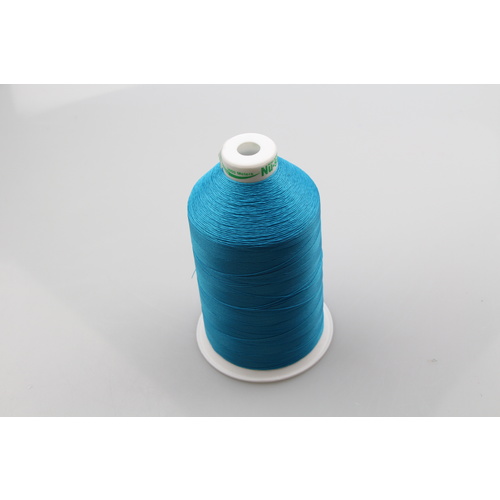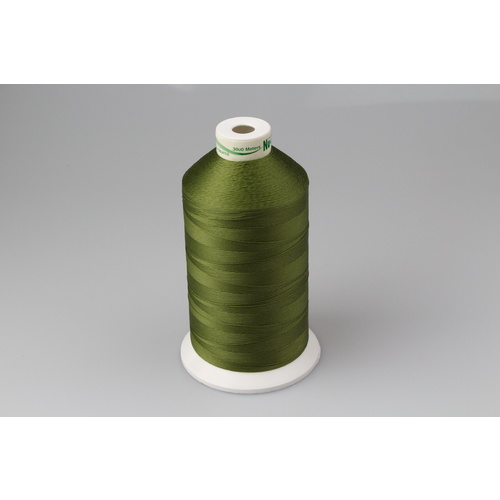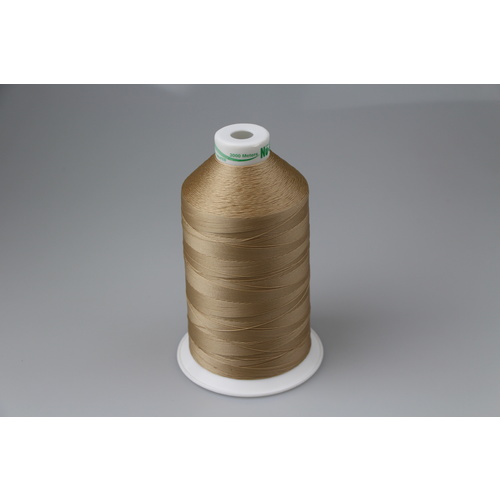INDUSTRIAL SEWING THREAD
When it comes to manufacturing strong, durable, and reliable products, industrial sewing thread plays a crucial role. Whether you're in automotive upholstery, heavy-duty canvas work, furniture production, or fashion manufacturing, the type of thread you use can make or break your finished product. But not all threads are created equal—especially when it comes to sewing thread for industrial sewing.
In this guide, we’ll walk you through the essentials of industrial sewing thread, what sets it apart from domestic options, and how to choose the best one for your project or business.
What Is Industrial Sewing Thread?
Industrial sewing thread is designed specifically for high-speed, high-stress sewing operations typically found in commercial and manufacturing environments. Unlike domestic threads used for day-to-day repairs or light garment sewing, industrial threads are built to endure tension, abrasion, and environmental stressors like UV exposure and moisture.
These threads are used in everything from car seats and tarps to shoes and safety harnesses. Their strength, durability, and performance under pressure are what make them indispensable in the industrial sector.
Why Is Industrial Thread Different from Domestic Thread?
You might be wondering, "Can’t I just use regular thread for heavy sewing?" In short—no. Domestic thread simply doesn't hold up in high-volume or high-pressure environments.
Here’s why sewing thread for industrial sewing stands out:
1. Tensile Strength
Industrial threads are engineered to withstand significant tension without snapping. This is particularly important in applications like upholstery, sails, or safety gear, where failure could lead to costly (or even dangerous) consequences.
2. Abrasion Resistance
Sewing projects in industries such as mining, construction, and outdoor gear production demand materials that can stand up to friction. Industrial threads are often coated or constructed from materials that resist fraying and wear, even in rugged conditions.
3. Heat and UV Resistance
Threads used in industrial settings—especially those exposed to outdoor environments—need to resist extreme temperatures and sun damage. Many industrial threads are treated or made from fibres like polyester and Kevlar that naturally resist UV degradation and heat.
4. Compatibility with Industrial Machines
Domestic sewing machines aren’t built for the thread tension or thickness of industrial sewing thread. Industrial threads work seamlessly with high-speed, heavy-duty machinery, allowing for consistent stitch quality during long production runs.
Common Types of Industrial Sewing Thread
Just like fabrics, not all threads suit every application. Here are the most commonly used industrial threads:
Polyester Thread
This is the go-to for general industrial sewing. Polyester thread offers excellent UV resistance, moisture-wicking properties, and strength. It’s ideal for automotive upholstery, outdoor furniture, and marine applications.
Nylon Thread
Nylon is strong and flexible, making it ideal for items that need some give, like luggage, bags, and footwear. However, it's not as UV-resistant as polyester, so it's best used indoors or where sun exposure is minimal.
Cotton-Wrapped Polyester
This hybrid thread combines the natural look and feel of cotton with the strength of polyester. It's popular in the fashion and textile industries where appearance matters but performance can’t be compromised.
Kevlar Thread
Kevlar thread is used in extreme environments where maximum strength and heat resistance are critical—think firefighting gear, aerospace, or bulletproof garments. It’s pricier but unmatched in strength.
PTFE-Coated Thread
PTFE (polytetrafluoroethylene) coated threads offer superior chemical resistance and are used in environments exposed to acids, oils, or solvents—like chemical plants or marine manufacturing.
Choosing the Right Sewing Thread for Industrial Sewing
When selecting a thread, think beyond just colour and thickness. Here are a few tips to help guide your choice:
Know Your Application
Consider the environment where your finished product will be used. Will it be outdoors? Exposed to heat or chemicals? Subject to movement or stress? These factors will help determine whether you need polyester, nylon, or a specialty thread like Kevlar.
Match the Thread Weight
Thread weight (or thickness) should match the material you're sewing. Thicker threads are great for canvas and leather, while finer threads suit detailed garment work.
Check Machine Compatibility
Ensure your sewing machine is compatible with the type and size of thread you're using. Industrial machines are often designed for higher thread tension and speed, which can snap or tangle thinner domestic threads.
Look for Quality Brands
Not all thread is created equal. Reputable manufacturers produce consistent, high-quality threads that won’t fail mid-project. While cheaper options might seem attractive, they often result in breakage, poor stitch quality, or machine wear and tear.
Applications of Industrial Sewing Thread
From fashion to farming, industrial sewing thread is used in a surprising number of industries:
- Automotive: Car interiors, seat covers, airbags
- Furniture: Upholstery stitching for both indoor and outdoor use
- Apparel: Workwear, uniforms, sports gear
- Canvas and Tarp Work: Tents, tarpaulins, awnings
- Footwear and Bags: Shoes, backpacks, duffle bags
- Marine and Aviation: Sails, boat covers, parachutes
- Safety Equipment: Harnesses, firefighting suits, bulletproof vests
Each of these applications requires thread that can handle tough conditions and long-term use without failure.
Caring for Industrial Sewing Thread
Storage and handling matter just as much as your thread choice. To maintain the integrity of your thread:
- Store in a cool, dry place away from direct sunlight.
- Keep dust and moisture out of open thread cones.
- Avoid prolonged exposure to chemicals or oils that might degrade fibres.
Proper storage can significantly extend the life of your thread and ensure consistent stitching quality.
Whether you’re running a large-scale manufacturing operation or tackling heavy-duty DIY projects, investing in the right sewing thread for industrial sewing is essential. It’s not just a component—it’s the backbone of durability, safety, and professionalism in your final product.
Choosing the correct industrial sewing thread ensures fewer breakdowns, better machine performance, and products that stand the test of time. So next time you're planning a rugged sewing project, remember—it all starts with the thread.
Sewing Threads at Vardhman A&E Threads
If you're looking for high-quality sewing threads for your industrial sewing projects, Vardhman A&E offers a premium selection. Whether you need Gutterman Tera 80 for precise stitching or heavy-duty bonded nylon thread for industrial applications, we provide reliable options to suit your needs.
Why Choose Vardhman A&E?
- High-quality materials – Threads designed for durability and professional results.
- Wide range of options – From polyester to waxed linen threads.
- Trusted by professionals – Used in industries like automotive, fashion, and saddlery.
When working with upholstery projects, investing in the right sewing thread ensures your project stands the test of time. Visit Vardhman A&E to explore their range of sewing threads today!









